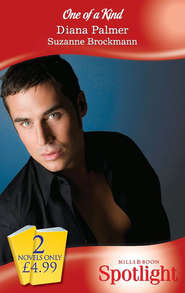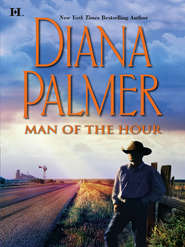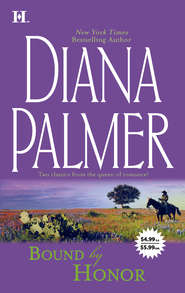По всем вопросам обращайтесь на: info@litportal.ru
(©) 2003-2024.
✖
Magnolia
Настройки чтения
Размер шрифта
Высота строк
Поля
It had a natty curved dash, spoked wheels, and a long rod with a knob that came up from the box between the front tires, which was how the driver steered it. The engine was mounted between the rear tires, with the gearbox under the small seat. It now zipped along the rough roads smartly, although it had had no end of problems, which Claire and her uncle had needed to deal with on a daily basis. For one thing, the boiler tended to overheat, and in fact, Claire still had to stop every mile and let it cool down. The transmission band snapped with irritating regularity. Oil that had to be splashed over bearings to prevent their overheating constantly leaked past the piston rings and fouled the spark plugs. Brake problems abounded. But despite all those minor headaches, the little engine chugged merrily along for short spells, and Claire felt on top of the world when she drove.
She loved driving in Atlanta, past the elaborate traps and carriages. It was a city of such history, and she herself had been part of two fairly recent celebrations in 1898. The first had been the United Confederate Veterans reunion in July, to which some five thousand visitors had flocked to see the grand old gentlemen parade down Peachtree Street in their uniforms. She recalled old General Gordon sitting astride his grand black horse in the rain as the parade passed by him on the thirty-fourth anniversary of the Battle of Atlanta. The moment, so poignant, had brought tears to her eyes. The Northern newspapers had been disparaging about the event, as if Southerners had no right to show respect for ordinary men who had died defending their homes in a war many felt had been caused by rich planters who were too greedy to give up their slaves.
But controversy dimmed in December of the same year, when another rally was held. Called the Atlanta Peace Jubilee, it was to celebrate the victory of America in the Spanish-American War. President William McKinley was there, and Claire actually got to see him. John had been in the hospital at the time, and Claire had gone to tell him all about the excitement of seeing Confederate and Union war veterans celebrating side by side.
In fact, just this past July, Claire and Uncle Will had joined John at the Aragon Hotel at a reunion attended by veterans from both Union and Confederate forces. There, she thought, was a truly touching event as old enemies reminisced together and tried to bury the past.
In what seemed a very short time, Claire was home, maneuvering the little vehicle past Mrs. Dobbs’s towering white Victorian house. She guided it carefully into the shed and disengaged the engine, wrinkling her nose at the fumes from the gasoline. The burning oil was equally obnoxious to the nostrils. She fanned at the air, keenly aware of the stains on her uncle’s long driving coat and on her face, as well.
She climbed out and patted the open seat lovingly. “There, now, Chester,” she cooed, using her own pet name for the mechanical creature she loved with all her heart, “you’re home at last. I’ll be out to clean your plugs later.” She grimaced as she noted the knots that secured the wheel on the back. “And I guess I’ll have to bring a knife, to free that,” she murmured to herself. It was unlikely that she was going to be able to enlist John to untie the complicated sailor’s knots that Uncle Will’s neighbor had used to tie on the bicycle. He had so little time to spend with her, even in the evenings. Especially in the evenings.
She closed the shed up, twisted the wooden knob that secured it, and went toward the back of the house, stripping off the car coat and goggles on her way. She walked down the hall, intent on reaching the upstairs apartment without being seen in her deplorable condition, her once pristine skirt and blouse splotched with dust and dirt and oil, her face grimy, her hair disheveled from the goggles and driving cap.
Just as she gained the hall, she unexpectedly came face-to-face with her husband and two men in business suits.
John looked at her as if he didn’t recognize her—worse, as if he didn’t want to recognize her! His dark eyes grew darker and he took a visible breath.
“Claire, come and meet Edgar Hall and Michael Corbin, two of my colleagues. Gentlemen, my wife, Claire.”
“How do you do,” she said, with a smile, extending a grimy hand—which they both shook without apparent distaste. “You’ll have to excuse the way I look; I’ve just been driving my uncle’s motorcar up here from Colbyville. It took most of the morning.”
“You drive a motorcar, Mrs. Hawthorn?” one of the men asked in surprise.
“Yes,” she replied proudly. “My uncle taught me.”
He gave John a speaking glance. “How…er…interesting and unusual.”
“Isn’t it?” she replied. “If you’ll excuse me, I’ll just go and get cleaned up.”
“You do that,” John said, looking as if he were dying to say more.
She made her escape, painfully aware of the shocked and disturbed glances she was getting.
“…not wise to let your wife be driving that contraption around,” one of the men, the older one, said as she reached the top of the staircase. “What will people say?”
She didn’t wait for John’s reaction. Men! she thought angrily. If a woman took off her apron and did anything intelligent, it shocked them speechless. Well, they were due for a few more shocks, if she had her way. And that included her reluctant husband!
But her bravado lasted only until John came into their apartment. The very sharp and deliberate way he closed the door was disturbing.
“I won’t have you driving that contraption around the city,” he said shortly.
“Because it isn’t ladylike and your friends don’t approve?” she taunted, eyes sparkling with bad temper.
“Because the damned thing is dangerous,” he returned. “Don’t drive it alone again.”
“Don’t you puff up at me like a rooster with ruffled feathers,” she shot back. “I’ll do what I please. I’m not your slave…or your property.”
The scowl grew darker. “You’re my wife, for my sins. I’m responsible for you. That thing is a death trap!”
“No more dangerous than a horse,” she informed him. “And the opinion of your colleagues matters not one whit to me!”
“Nor to me,” he said irritably. “My concern is for you, not public opinion.”
Her heart jumped. “Truly?”
“Truly. And I don’t want you talked about,” he added quietly, searching her eyes. “Some measure of decorum is called for. Your social status is higher now than it was when you lived with your uncle. You will have to conform, just a little.”
She felt sick inside. The old freedom-loving days of her youth seemed to have died with her uncle. Now she had to conform to fit in with polite society. How in the world would she manage that dull sort of life, after the wonderful days with Madcap Will?
She caught hold of the back of a graceful wing chair and held on to it for support. “I see,” she replied, staring at John as the full impact of the shift in her life hit her—and the difference in her husband. He wouldn’t have been overbearing like this with Diane. If she’d wanted to ride naked down the streets of Atlanta in a motorcar, he’d probably have said nothing about it. But then, he loved Diane. And while he was concerned for Claire, it was for her reputation. God forbid that more gossip should be added to fan the already blazing fires.
John let out a long sigh. Claire’s sudden pallor enhanced his guilt. “Certain sacrifices have to be expected in a marriage like ours.”
“My sacrifices, of course,” she said, nodding curtly. “You’ll go on as before, working fifteen-hour days and mooning over Diane.”
The attack caught him off-guard. “Damn you!” he snapped.
He seemed to implode, Claire thought. His eyes blazed at her, his stance threatened.
She lifted her chin and moved toward him, utterly fearless. “Would you like to hit me? Go ahead. I’m not afraid of you. Do your worst. I’ve lost my uncle and my home and my independence. But I haven’t lost my pride and my self-respect, and nothing you can do will take those away.”
“I don’t hit women,” he said icily. “But I won’t have you driving around in that motorcar alone. Try it again and I’ll cut the tires off the damned thing.”
“John!” she burst out, shocked at hearing him curse not once but twice in less than a minute.
He smiled coldly. “Do you think that because I work in a bank I don’t react like a normal man to things that anger me? I wore a uniform for several years, Claire, between graduating from the Citadel and going to Harvard. I was working in Atlanta when I reenlisted—long enough to fight in Cuba—but at one time, I never envisioned a life outside the military. I learned to conform to civilian life, because I had to. You’ll learn to conform to high society, because you have to. There’s been more than enough gossip about us already.”
He hadn’t spoken to her like this before—and now he was making himself a stranger to her. She cleared her throat.
“I had to get Chester here, didn’t I?”
“Chester?” he asked, scowling.
She made an awkward motion with her hand. “My motorcar.”
His eyes twinkled. She was an odd woman, he mused, full of spice and vinegar, but she gave a pet name to a piece of machinery.
“I won’t drive it.” She finally agreed, although it was like giving up a part of herself. Apparently the cost of her support was going to be the suppression of her personality. “I can ride my wheel when I need exercise, I suppose.”
“You needn’t sound so tragic. I only wish you to act like the wife of the vice president of one of the most prestigious banks in the South,” he said, “instead of a little girl playing with dangerous toys.”
Her gray eyes glittered. “A motorcar is hardly a toy.”
“For you, it is. Why don’t you spend some of this abundant free time you seem to have making friends or visiting or buying yourself some new clothes?” he asked irritably. “You’re living in the city now, not feeding your chickens and washing clothes like a countrywoman.”
In other words, she had to behave as if she were good enough to be married to a bank officer with a Harvard degree. She felt pure dislike for him.
“I shall try to give good value, sir,” she said haughtily, and curtsied.











